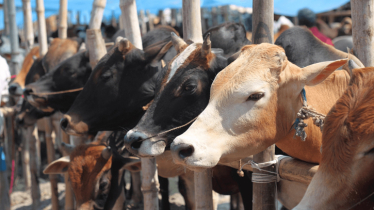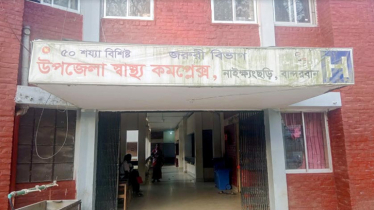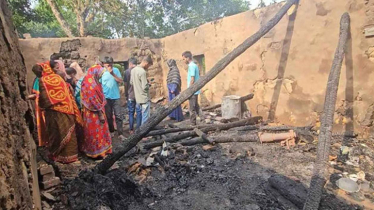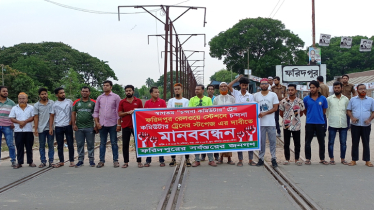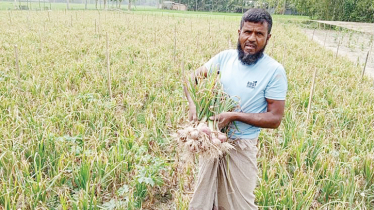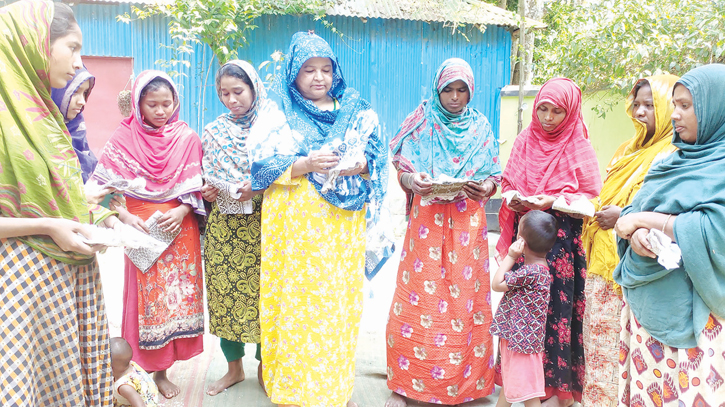
The success of crafting handmade caps has provided employment opportunities for hundreds of disadvantaged women in Ulipur upazila, empowering them to sustain their families and attain financial stability. Photo: Messenger
The traditional hand-made caps from the women of Prayanth village are gaining popularity in the Middle Eastern markets, with an increasing demand for their unique designs. This success has provided employment to hundreds of impoverished women in the upazila, enabling them to support their families and achieve financial solvency.
At the heart of this success story is Morsheda Begam, the main craftswoman and entrepreneur behind the cap-making enterprise. She is the founder and Director of 'Nipun Hastaya Shilpa Sambhar,' a company based in Patilapur village under Ulipur upazila of Kurigram district. Morsheda faced her fair share of challenges but has now become a beacon of hope for unemployed women, providing them with a source of income.
Morsheda's journey began in 1995 when she got married and moved to Tangail district with her husband due to financial constraints. It was there, while working in a towel-making factory, that she observed Kamola Begum, a neighbor, making prayer caps. This sparked her interest, and she learned the art of cap-making. Initially, she earned Tk 350 daily from Kamola. However, her skills caught the eye of a private company official, who placed an order for 50 caps, paying her Tk 17,000.
Word of her success spread, and many unemployed women sought to join her. Morsheda not only provided employment to women in Patilapur but also expanded to neighboring villages. Today, around 5,000 women work with her. Men are also involved in the business, earning a livelihood.
Under Morsheda's guidance, the women create a variety of patterned caps using needles, silk yarn, and cloth. The caps are sold to traders in Feni district, who then export them to Bahrain, Saudi Arabia, and Dubai. Each handmade cap earns the women a remuneration of Tk 800 to Tk 1,600, with Morsheda taking a commission of Tk 70 to Tk 90. The company sells around 8,000 to 10,000 caps every month.
Hawa Begam, a worker from Patilapur village, shared, "I have been making caps for four years after receiving training from Morsheda Begum. This work has eliminated financial struggles for my family." Even students like Mukta Khatun, an eighth-grader, contribute by making caps, using the income to support their education and families.
Shah Mohammad Jonayed, the Deputy Manager of Kurigram BSIC, expressed his support for Morsheda, stating, "Kurigram BSIC is ready to assist Morsheda Begam with government training, financial loans, or any other support needed to market her handmade caps."
This inspiring story of entrepreneurship and empowerment showcases how traditional skills can be transformed into a thriving business, not only improving the lives of these women but also putting Kurigram district on the map. Morsheda's journey exemplifies how entrepreneurship, coupled with empowerment initiatives, can catalyze socio-economic progress in underserved communities.
As her enterprise continues to flourish, Morsheda's vision expands beyond mere economic success. She envisions a community where women are not just earners but leaders, where their creativity and dedication are recognized and celebrated. Through her pioneering efforts, Morsheda is weaving a tapestry of empowerment, one stitch at a time.
Messenger/Faria


